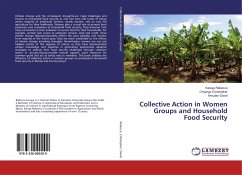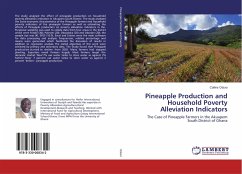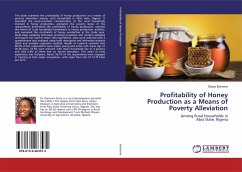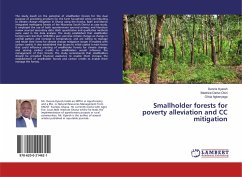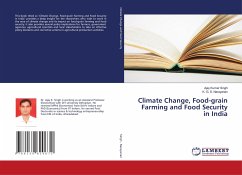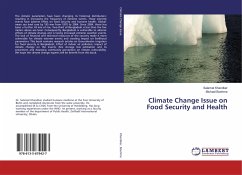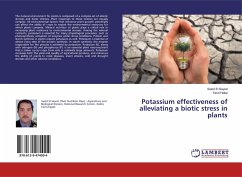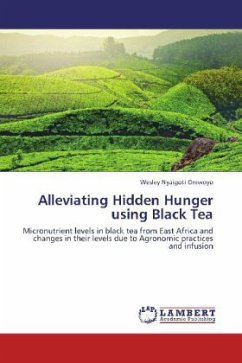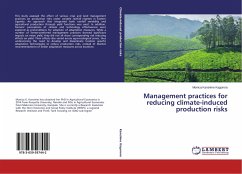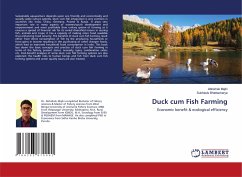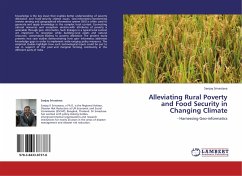
Alleviating Rural Poverty and Food Security in Changing Climate
- Harnessing Geo-informatics
Versandkostenfrei!
Versandfertig in 6-10 Tagen
32,99 €
inkl. MwSt.

PAYBACK Punkte
16 °P sammeln!
Knowledge is the key input that enables better understanding of poverty alleviation and food security related issues. Geo-informatics representing remote sensing and geographical information system (GIS) is often used to generate and apply knowledge in the complex local context. Connecting natural resources and ecosystem services with attributes of poverty is amenable through geo- informatics. Such linkages in a typical local context are important to recognize while building rural assets and natural resources conservation leading to poverty alleviation The present study presents two case studi...
Knowledge is the key input that enables better understanding of poverty alleviation and food security related issues. Geo-informatics representing remote sensing and geographical information system (GIS) is often used to generate and apply knowledge in the complex local context. Connecting natural resources and ecosystem services with attributes of poverty is amenable through geo- informatics. Such linkages in a typical local context are important to recognize while building rural assets and natural resources conservation leading to poverty alleviation The present study presents two case studies demonstrating how geo- informatics addresses knowledge gaps in order to implement wide-ranging policy measures. The empirical studies highlight how such technological inputs could be put to use in support of the poor and marginal farming community in the different parts of India.



